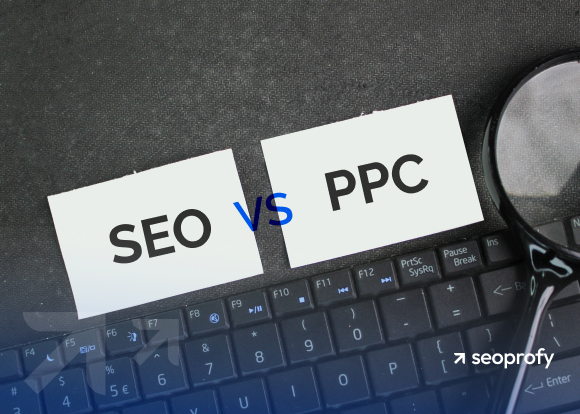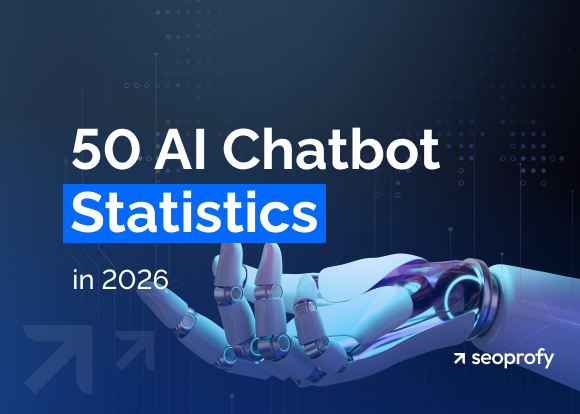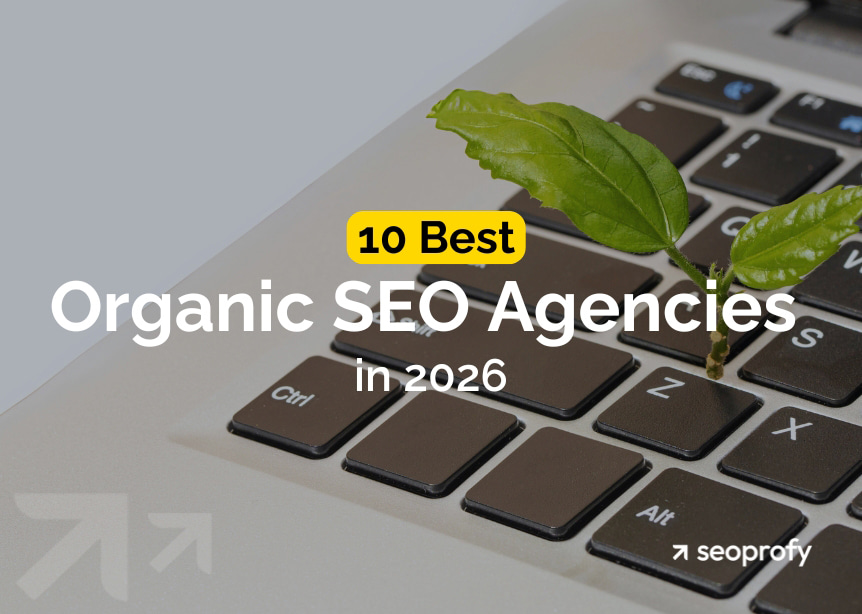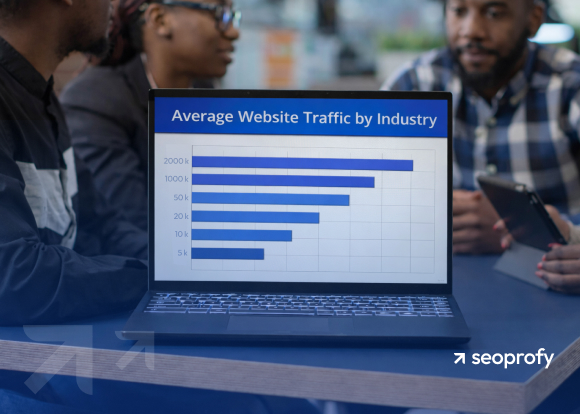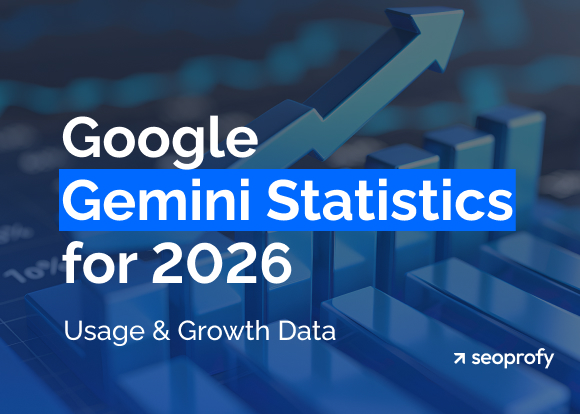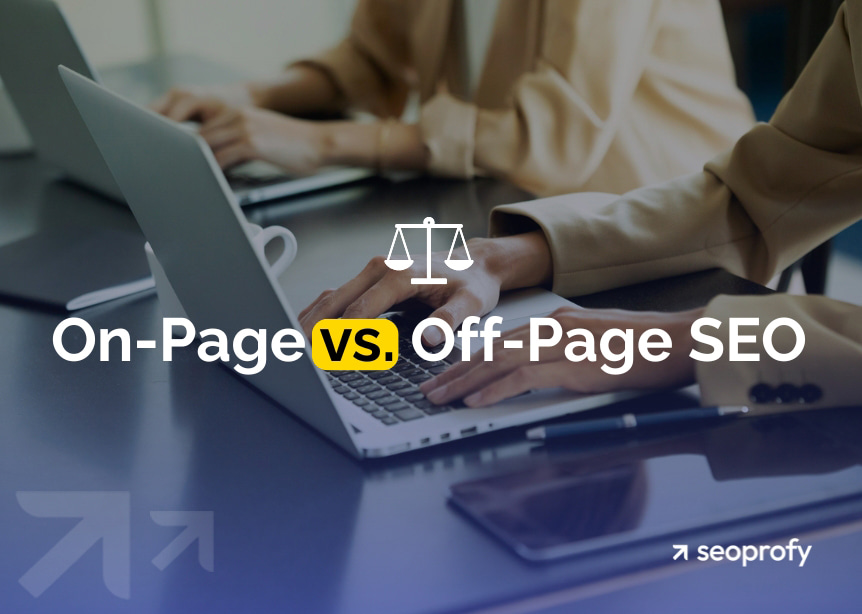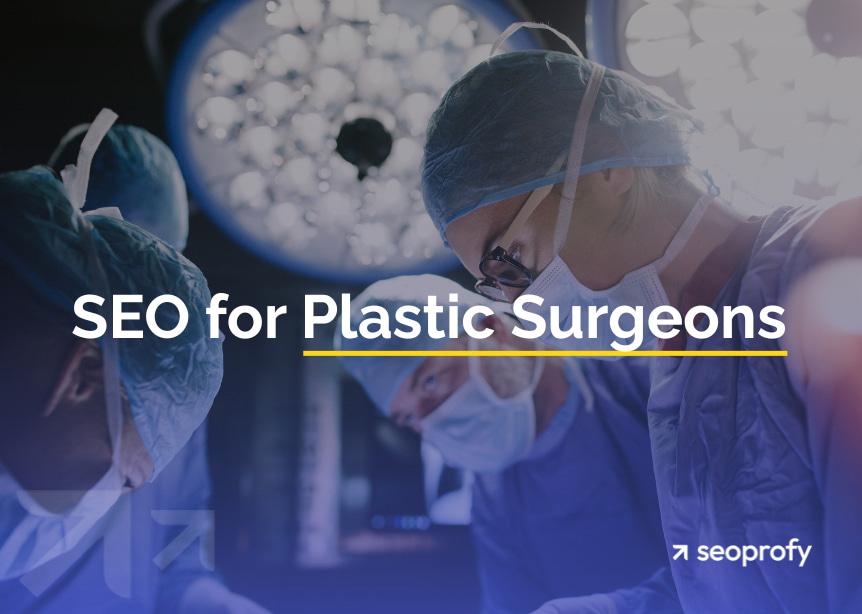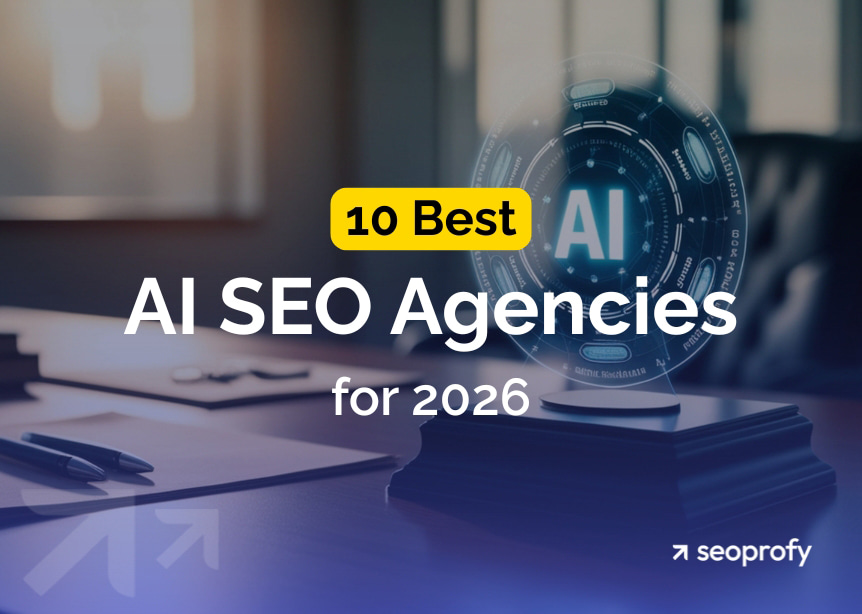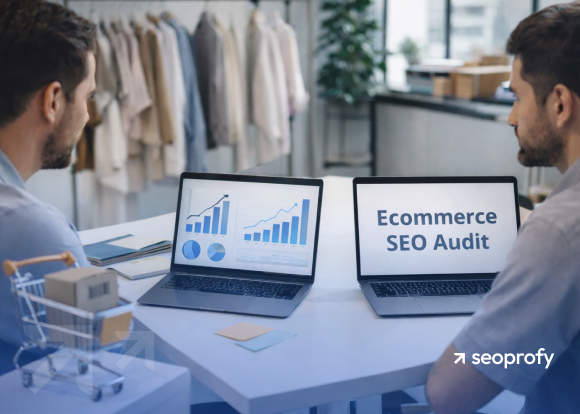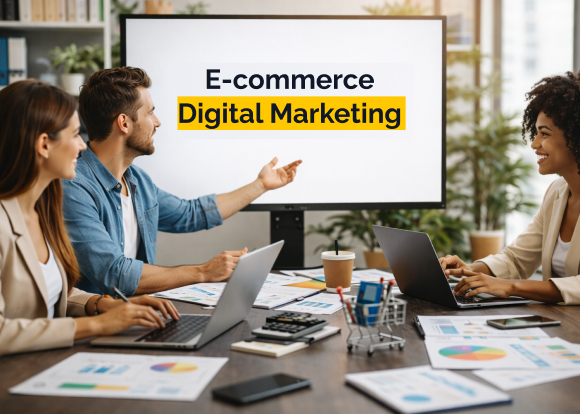The SEO vs. PPC is an ongoing debate as businesses seek the best path to online visibility. These strategies might seem similar, but they take very different approaches to achieving the same goal: bringing web traffic.
SEO and PPC have their own timelines and resource needs, and they often play different roles in the buying funnel. So, rather than wondering which one is better overall, it’s smart to ask the question of which strategy (or the combination of both) works best particularly for you. We answer this question in this SEO vs. PPC comparison article.
- SEO improves your organic position in search results, while PPC is a model where you’re charged when someone clicks your ad.
- SEO offers long-lasting value and a solid return on investment, but you need to be patient to see the results.
- PPC provides immediate website visibility and budget control, but traffic stops as you stop paying.
- SEO is great for competing against the big players and building your authority, whereas PPC is perfect for new websites or time-sensitive deals.
- The most effective digital marketing strategies often blend both SEO and PPC.
What Is SEO?
Let’s begin our comparison with the SEO definition. SEO, or search engine optimization, is the set of specific techniques and strategies used to improve your website’s position in search engine results pages and get more traffic and conversions. Simply put, it’s about optimizing various elements of your site, like content quality and relevance, keyword usage, site structure, page loading speed, and more, that Google and other search engines evaluate when deciding where to rank it.
The SEO value is recognized by many successful brands. Look at any popular website you visit regularly, and we guarantee they have SEO specialists working behind the scenes. More than 90% of marketing professionals confirm that SEO delivered measurable improvements to their website performance and helped them reach their goals.
SEO consists of the following tactics:
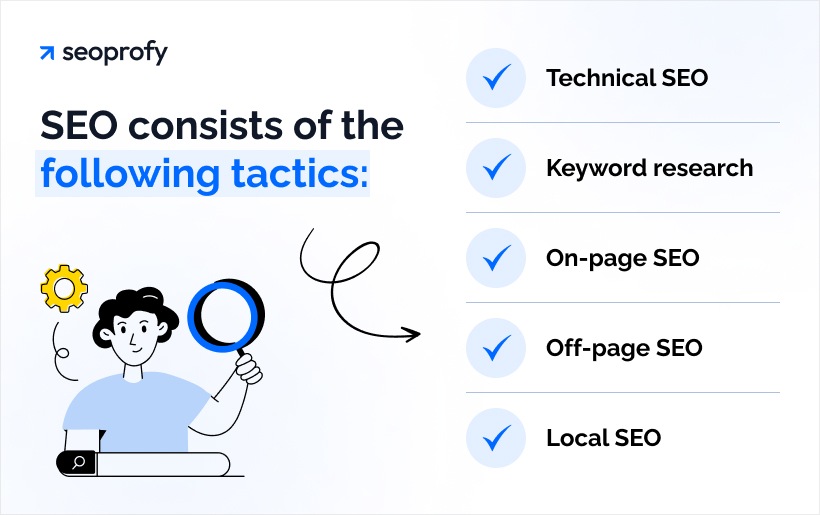
- Technical SEO: Tech foundation optimization and crawlability improvement
- Keyword research: Target keyword identification and search intent analysis
- On-page SEO: Content optimization and metadata enhancement
- Off-page SEO: Link building and authority establishment
- Local SEO: Geographic targeting and local business listing management
Let’s overview each of these techniques in greater detail below.
Technical SEO
Technical SEO lays the first bricks of your SEO presence and enables search engines to understand how your site is structured and interpret your content. Without these adjustments, even the most expertly written article won’t rank well.
Here are some key tasks that fall under technical SEO:
- Optimizing site speed
- Enhancing mobile device compatibility
- Structuring your website for optimal navigation
- Securing your site with HTTPS protocol
- Implementing structured data markup
- Establishing proper page redirects
- Identifying and repairing dead links
- Resolving content duplication problems
Keyword Research
The search terms people type on Google are called keywords, while keyword research is the process of discovering them. It helps you understand both the language of your audience and what they’re interested in. Keywords are then used to optimize your content so that next time someone looks for what you offer, they will be provided exactly with your pages in search engine results.
Let’s see how keyword research works with an example of Ahref’s Keyword Generator:
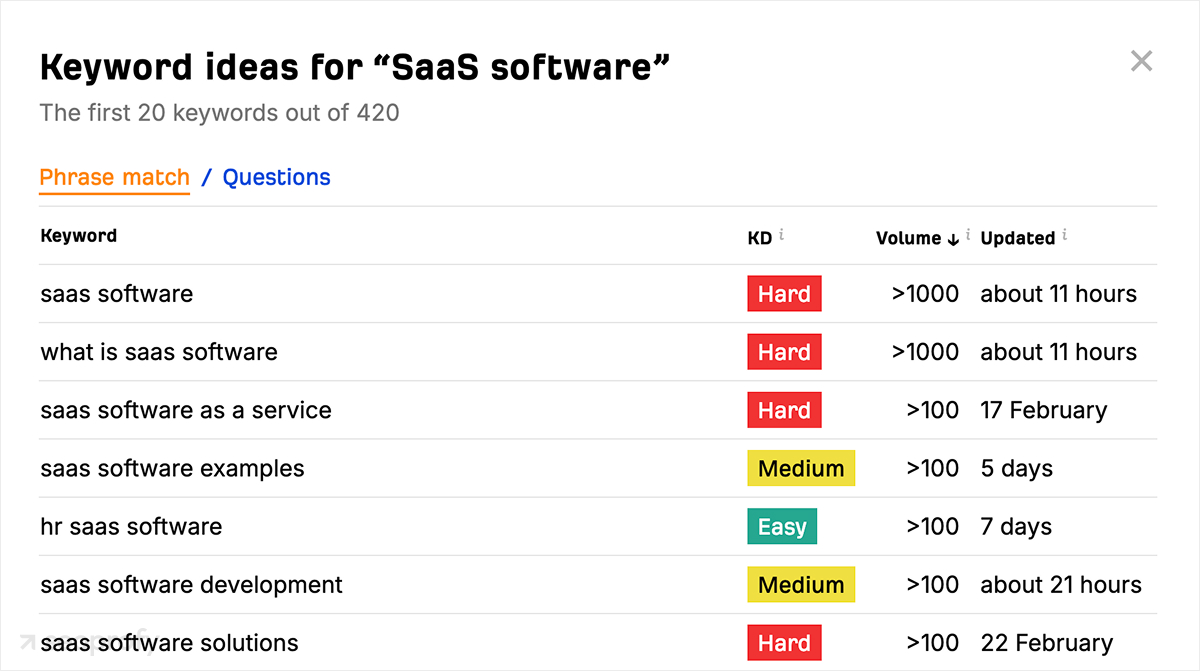
The KD column stands for keyword difficulty, which indicates how hard it would be to rank for each keyword. You can see that general terms like “saas software” are marked as “Hard,” while more specific terms like “hr saas software” are labeled as “Easy.”
The Volume column shows approximately how many monthly searches each keyword gets. The broader terms have “>1000” searches, while the more specific ones show “>100” per month. The higher the volume, the more effort you should put in to rank for a certain keyword.
However, Ahref’s Keyword Generator is quite a basic tool. More advanced SEO tools like the full Ahrefs suite, SEMrush, and Moz provide actual search volume numbers instead of ranges, analyze your competitors’ keyword strategies, reveal keyword gaps in your content, suggest content ideas based on search intent, and much more.
On-Page SEO
On-page SEO is an umbrella term that covers all optimization practices that take place within your website itself. Without on-page SEO, your website would be nearly invisible online. Search engines wouldn’t know what the content of your pages is, and, as a result, your site would be buried under competitors who optimized these elements.
On-page SEO involves:
- Keyword placement: The relevant keywords from your research should be then inserted into your content. Don’t overuse them, as Google can detect keyword stuffing and penalize your site.
- HTML elements: These include the creation of title tags — that blue text you click when searching on Google, and meta description — the short summaries you see under the title. Some other HTML elements are headings, like H1 and H2, image alt text (image descriptions), schema markup, and canonical tags. Each of them allows Google to interpret and rank your web pages.

- URL structure: This is the page’s web address. A good URL is one that tells both people and search engines exactly what the page is about.
- Internal linking: These are links that connect different pages within your website. This helps search engines recognize the relationship between your content, as well as lets visitors navigate your site.
Off-Page SEO
Off-page SEO refers to all the activities you do outside of your own website. Here are a couple of important strategies:
- Backlink building: Backlinks are links from other websites that point to your site. Their main goal is to signal to Google that others find your content valuable enough to reference. The main principle of today’s link building is that a few quality backlinks from relevant, authoritative sites carry more weight than numerous links from sources that aren’t as reliable.
- Guest posting: This involves writing articles for other websites in your field. Not only does it help establish you as an expert, but it also gives you valuable backlinks. Plus, it’s a great way to reach new audiences who might not have heard of your brand before.
- Brand mentions: These are references to your brand found online, even if they don’t link directly to your site. They play a key role in shaping your overall reputation on the web.
Local SEO
Local SEO is a specialized branch of search engine optimization that aims to boost visibility for businesses that have a physical presence, such as restaurants, retail stores, medical practices, law firms, and service businesses like plumbers or electricians. While local SEO shares the same principles as traditional SEO, it adjusts its strategies to connect businesses with customers who are nearby.
Here are some key components of local SEO:
- Google Business Profile optimization: To ensure you show up in local searches, you should have a complete and accurate Google Business Profile. It provides Google and searchers with details about your business, like your address, hours, and photos.
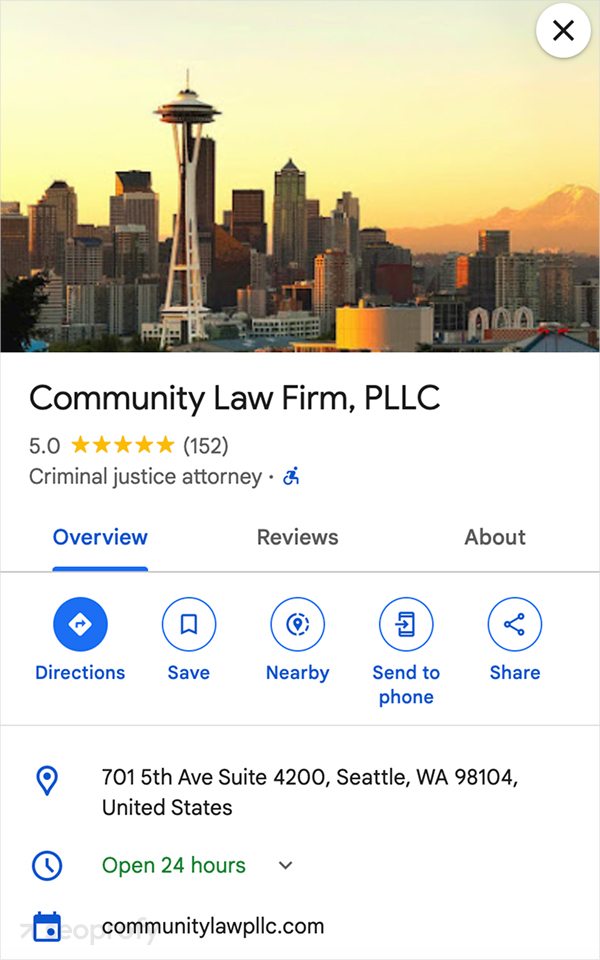
- Local keyword targeting: It’s helpful for local businesses to incorporate specific location terms into their content, like “Denver tax attorney” or “best pizza in Chicago.”
- Location-specific content: Writing about local topics, events, news, or anything relevant to your community is an excellent method to increase your brand awareness in your area.
- Local link building: This is the same link building, just with a focus on your community. Within this strategy, you should look for backlinks from other local businesses, chambers of commerce, and local media publications.
- Customer reviews: Positive reviews on sites like Google and Yelp can enhance your local rankings while building trust with customers looking for nearby services.
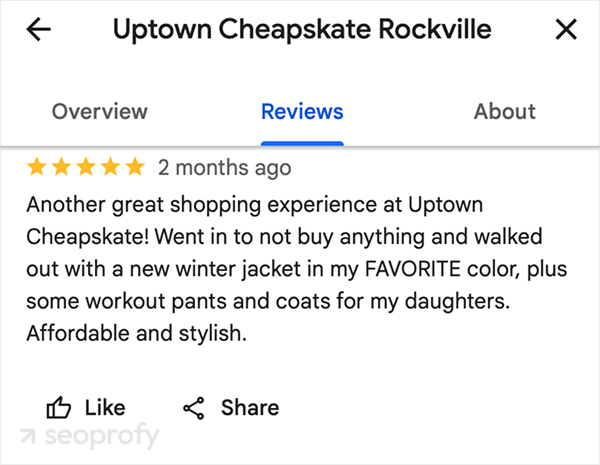
Tired of watching other businesses outrank you? SeoProfy will claim your rightful place in the top search results. Here are the advantages we can bring to your business:
- Niche expertise
- Higher search rankings
- Increased quality traffic
- Better conversion rates as we target visitors with real purchase intent

SEO: Pros and Cons
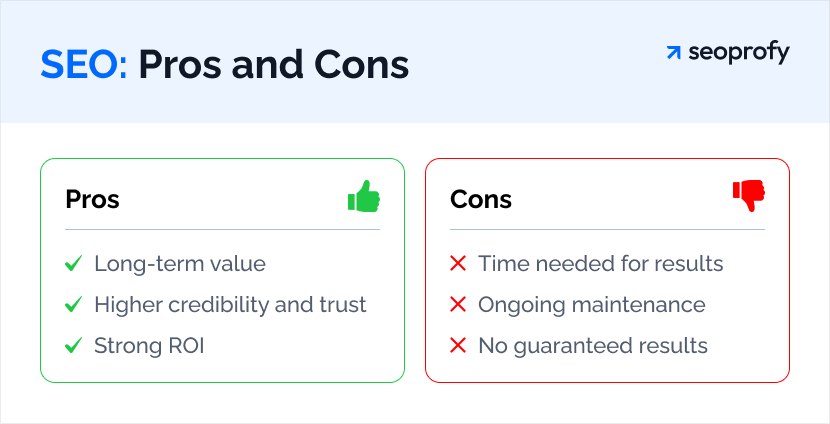
Like any approach, SEO comes with both advantages and disadvantages. Here are the main reasons to choose this approach:
- Long-term value: SEO keeps generating leads over time. Measure SEO performance and find out that good quality, well-optimized content attracts traffic for years after it’s posted.
- Higher credibility and trust: People tend to trust organic listings more than paid search ads. If Google ranks your site at the top, it signals to users that it’s worth discovering further.
- Strong ROI: Generally, the ROI of SEO is higher compared to many other marketing options. Although it takes an upfront investment and ongoing effort, the long-lasting benefits of organic traffic usually far exceed the costs. For instance, on average, B2B SaaS firms see a remarkable 702% return on their SEO investment.
That said, SEO isn’t without its challenges, and it might not be the best fit for every business. Here’s what you should know before considering investing in organic search marketing;
- Time needed for results: SEO rarely brings fast results. A typical SEO timeline is from three to six months, and in competitive markets, you may have to wait even longer.
- Ongoing maintenance: SEO isn’t a one-and-done deal. Because search algorithms change frequently and your competitors are always working on their strategies, too, keeping your rankings up demands continual attention and investment.
- No guaranteed results: Unlike paid ads, where you can pretty much buy visibility in just one day, SEO can’t promise specific results due to, again, algorithm changes, competitive actions, and other factors out of your control.
What Is PPC?
Before we explore the SEO vs. PPC differences, let’s also overview what PPC is in more detail. When you search for something on Google or Bing, you’ve probably noticed paid search results right at the top with the label “Sponsored.” These are PPC campaigns in action.
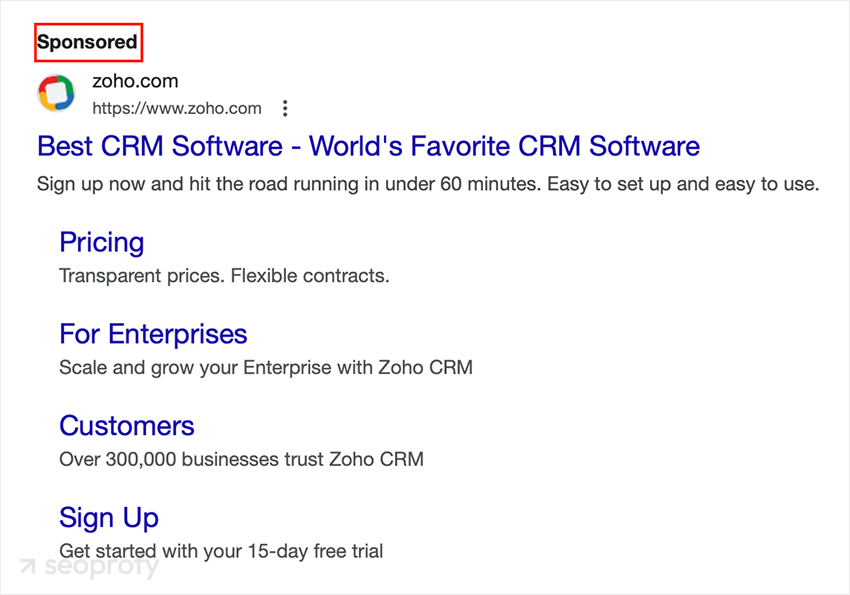
PPC, or pay-per-click, is an online advertising model where advertisers pay a fee each time someone clicks on their ads. It’s one of the most direct ways to increase web traffic, and about 80% of businesses rely on PPC. The go-to PPC platform is Google Ads, where advertisers bid on keywords relevant to their target audience.
The main PPC techniques include:
- Keyword research
- Keyword bidding
- Audience targeting and retargeting
- Ad creation
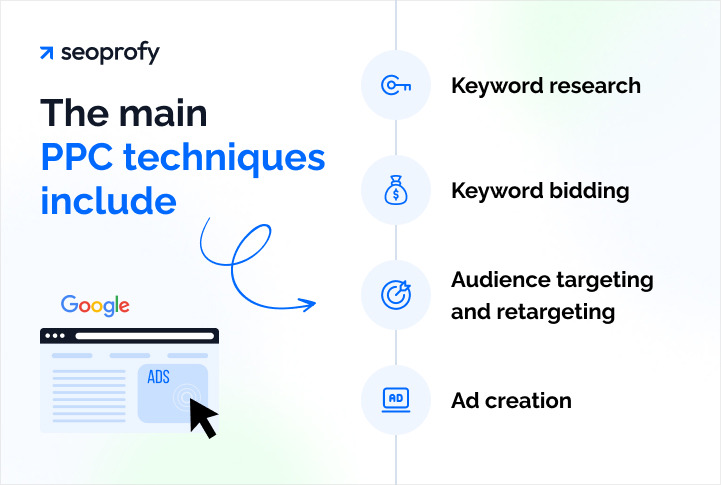
Let’s take a closer look at each of these techniques.
PPC Keyword Research
SEO and PPC keyword research have many things in common: you start by thinking about what terms people might search for when looking for your business. But there’s one big difference: you’re actually paying for every click. This means you should be very picky when you search keywords, as your budget directly depends on this choice. Especially when in some industries, like insurance or legal services, some competitive keywords can cost $100 or even more per click!
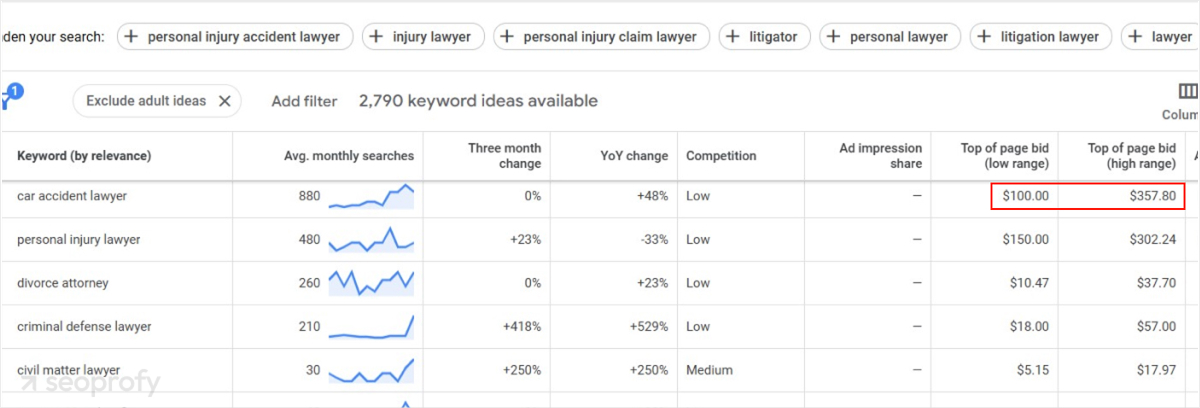
The good news is that given the PPC nature, you can quickly test the keywords you selected. Within just a few days, you’ll know which ones bring in visitors who make a purchase. Next, you can tweak your strategy, spending more on the winning terms and removing the ones that don’t perform well.
Keyword Bidding
Keyword bidding is the process of deciding how much you’re willing to pay when someone clicks on your ad for a specific search term. When you set up your bids, you need to balance several factors:
- Keyword value: This is about figuring out how much money you can afford to spend on a click. Let’s say you sell luxury watches. If someone searches “buy luxury watch online,” you might find that one out of every 20 clicks leads to a sale of a $1,000 watch. That means each visitor is worth about $50 to you (because $1,000 ÷ 20 = $50). So, you could comfortably bid up to $10 per click and still see a solid profit.
- Competition level: As we’ve noted, popular keywords in highly competitive fields usually come with a higher price tag for bids.
- Quality score: Google isn’t just about the highest bidder. It wants to ensure users see useful ads. So, it looks at how relevant your ad is to the searcher and whether users actually click on it when they see this ad. This means you might pay less per click than your competitors and still find yourself listed above them.
Ad Creation
Your ad will look like a small snippet. It needs to catch attention, convey what you offer, and motivate them to take action. But it can be tricky to fit all that into a limited number of characters. Here’s what makes a great PPC ad:
- Headline: Your headline matters a lot — it’s the first thing people see when they look at search results. Make sure to include your main keyword and give them something appealing to grab their interest.
- Description: Here’s your chance to elaborate on what you’re offering. Emphasize what makes your product or service unique. And don’t forget to include a strong call to action, like “Shop Now” or “Get Your Free Quote Today!”
- Ad extensions: They’re valuable but often get overlooked. You can include your phone number, address, links to specific pages on your website, product prices, and more. These extensions not only give people more reasons to click but also help your ad take up more space on the results page, which pushes competitors down.
Audience Targeting and Retargeting
The last step is figuring out who you want to reach with your paid search campaigns. Today’s PPC platforms let you be very specific about who gets to see your PPC ads. You can start with targeting — showing your paid online advertisements to people who may not have interacted with your business yet.
Want to target 30-45-year-old parents who make over $100,000 and are interested in organic foods? You can do that.
Plus, you can also do retargeting. We’ve all been there — you check out a pair of shoes online, and suddenly, these exact shoes seem to follow you everywhere you go on the internet. That’s retargeting in action.
It works because it’s relevant. If someone spent time on your site, it means they’re already interested in what you have to offer. They might have gotten distracted before finishing their purchase or were just comparing different options. Retargeting gives you a second chance to win them over.
PPC: Pros and Cons
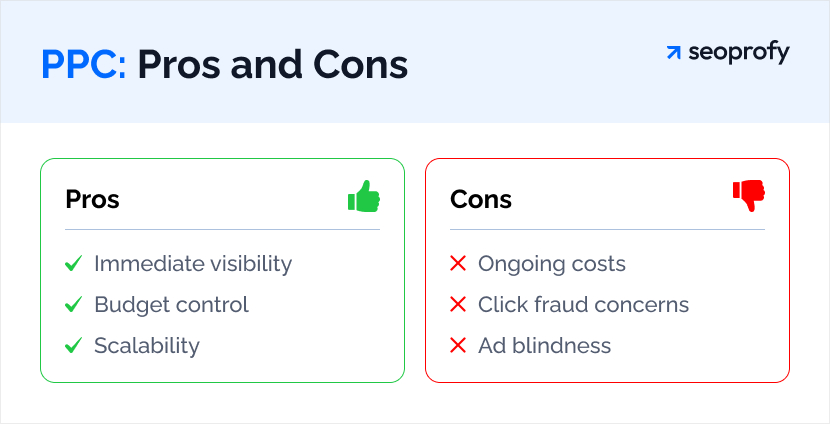
When it comes to PPC marketing, there are some quite attractive benefits compared to SEO:
- Immediate visibility: Unlike SEO, which takes months to build momentum, PPC works short-term: you can appear at the top of search results almost instantly. Your ads can be up and running, bringing in traffic within hours.
- Budget control: You have full control over how much you want to spend every day or month, and you can change your budget whenever you need to. Plus, there’s no minimum spending requirement, so it works for all kinds of businesses.
- Scalability: Once you find a strategy that works, you can quickly increase your budget to attract even more potential customers.
However, there are some drawbacks that make PPC a less preferable choice than SEO, especially if you aim to future-proof your digital presence:
- Ongoing costs: Unlike SEO, which can keep bringing in traffic even after you’ve paid, with PPC, the moment you stop paying, the traffic also stops.
- Click fraud concerns: In certain industries, competitors might click on your ads without any intention of making a purchase, which can drain your budget. Although ad platforms have some protections in place, it’s still a risk.
- Ad blindness: When it comes to organic vs paid search, a lot of users have developed “ad blindness” and just skip over paid ads in favor of organic search results. In fact, about 72% of users ignore paid ads and focus on organic results.
SEO vs. PPC: When to Choose Each One?
The differences between SEO and PPC are actually huge. So, the right choice depends entirely on your specific business needs, goals, preferred results timeline, and resources.
Below, you’ll find a comparison that considers different business scenarios and suggests whether SEO or PPC could be the better fit for each situation.
| Business Situation | Recommended Approach | Why It Works |
| You compete with established market players | SEO | You can target specific niche topics and long-tail keywords your competitors might overlook. |
| You want to show you’re an expert in your field | SEO | People tend to trust earned rankings more than ads. When your content consistently appears in organic search results, it builds authority that money can’t buy. |
| Your business model implies producing much helpful content | SEO | If you’re already creating lots of content, SEO helps it work harder for you. It’s perfect for businesses like media companies and educational platforms. |
| You need to dominate search results in your geographic area | SEO | Local SEO strategies can help businesses with physical locations attract nearby customers with optimized Google Business profiles and location-specific content. |
| You want long-term traffic with minimal ongoing investment | SEO | Once you rank well, you’ll get traffic without paying for each visitor. Over time, your cost per visitor decreases. |
| Your website is just getting off the ground | PPC | New websites take more time to get results from SEO. PPC lets you show up immediately while you work on your organic strategy. |
| You promote limited-time offers | PPC | PPC is quick to set up and can be paused at any time, so it’s ideal for flash sales or holiday promotions with specific timeframes. |
| You need to validate business concepts or market demand | PPC | PPC lets you test different keywords, offers, and audiences quickly to gather all the necessary data before you invest larger amounts. |
| Your products or services have high-profit margins | PPC | You can afford to pay higher cost-per-click rates while keeping your customer acquisition costs in check. |
SEO and PPC: When It’s Worth to Use Together?
When comparing SEO and PPC, our SEO agency believes that the best approach is about balance. This debate often overlooks an essential point: SEO and PPC can actually work together to boost your overall search engine marketing effectiveness.
So, when do SEO and PPC make a powerful team? Here are some scenarios when it’s worth combining both tactics:
- When targeting competitive keywords: Ranking for high-value terms is a long-term battle. PPC ensures visibility while your SEO efforts gain traction.
- When protecting your brand terms: Even if you rank #1 organically for your brand name, competitors can still bid on your brand terms. PPC can help you prevent competitors from stealing traffic.
- When seasonality affects your business: You can use both SEO and PPC to keep a steady organic traffic throughout the year but ramp up your PPC advertising efforts during peak seasons or sales events.
- When remarketing to website visitors: You can opt for organic SEO services when you want to attract visitors for the first time and then use PPC remarketing strategies to bring them back after they’ve left your site.
Wrapping Up
When it comes to the SEO vs. PPC debate, it’s not just about choosing between them. What matters is knowing what your business needs and creating a strategy that uses the right tools at the right moment.
Chances are, your competitors leverage both SEO and PPC. The ones who score big in Google search results typically don’t settle for just one method — they integrate several channels.
SeoProfy, a seasoned SEO agency, can help you make this difficult decision. During our free consultation, we’ll determine whether SEO is truly the right approach for your specific business situation. We care more about our clients’ results than selling services that won’t benefit them, and our SEO case studies prove this.
So, we promise to give you an honest assessment of your organic search potential. Contact us, and let’s have a conversation about your business goals!

